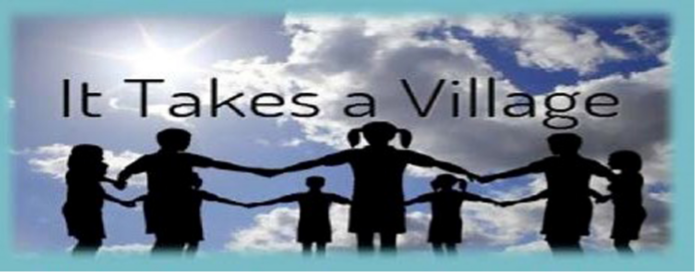Please note no federal funds are used in the maintenance or updating of this website.
English | Español | Russian | Haitian Creole
English | Español | Russian | Haitian Creole

When: March 24th-25th, 2017
Where: CAMLS Convention Center
124 South Franklin Street
Tampa, Florida 33602
For our live streaming we will be using Facebook live to stream out conference. We will be using all three FND Parent Traning Infomation Center’s Facebook pages to stream the three different tracks. All tracks in Track 1 will be streaming from POPIN’s Facebook page, All tracks for Track 2 will be streaming from PSN’s Facebook page, and all tracks from Track 3 will be starting from PEN’s facebook page. The opening, closing, vendor interviews, and Post session speaker interviews will be streamed from Family Network on Disabilities main Facebook page.
Here you will find short interviews with presenters post presentation and videos highlighting
our wonderful vendors who were able to come out!
Keynote 1: PBS: Defining Features and Evidence of Effectiveness – Don Kincaid & Meme Hieneman
– Amanda Keating
– Shelley Clarke, Jodi Panepinto, Kristy Jones, & Desiree Marhiquez
– Heather Peshak-George & Brian Gaunt
– Anna Winnaker, Dia Davis, & Dama Abshier
– Lise Fox
Keynote 2: How Can We Sustain Multi-Tiered Systems of Support? – Kent McIntosh
– Therese Sandomierski & Stephanie Martinez
– Natalie Romer & James Maxwell
– Karen Cox, Therese Sandomierski
& Brian Gaunt
– Chris Vatland
– Richard La Belle, Meme Hieneman, Don Kincaid, Heather Peshak- George, & Monica Verra-Tirado
We are pleased to announce that Family Network on Disabilities, Florida Center on Inclusive Communities at USF, and Florida’s APBS Network are hosting this conference, “Working Together to Improve Student Behavior”, on March 24th and 25th, 2017. This conference is designed for family members and educators, especially those supporting students with behavioral challenges. Our goals are to share current, evidence-based information and create a mechanism to promote collaboration to increase the use of positive behavior support practices, reducing reliance on reactive and punitive procedures.
The conference brings together national and local experts to deliver over 20 presentations, as well as skill-building workshops. The presentations will cover a wide range of topics related to effective school-wide discipline, classroom management, and especially individualized behavior support. The conference may be attended in person, provided the opportunity to interact with the speakers, exhibitors, and organizers. It is also being live streamed, encouraging participation via “watch parties” in your local community.
Behavioral challenges among school-aged children are prevalent, and even more common among those with disabilities (i.e., %40). Aggression, extreme noncompliance, and disruption behavior can interfere with children’s academic progress and social development, and place classrooms and family life in disarray. Stress in dealing with children’s behavior is one of the primary reasons teachers quit (Egyed & Short, 2006; Liu & Meyer, 2005) and one of the top reasons for parental stress (Baker, McIntyre, Blacher, Crnic, Edelbrock & Low, 2003; Spratt, Saylor, & Macias, 2007). Children with significant problem behavior are less likely to graduate from high school and contribute positively to society (Bradley, Doolittle, & Bartolotta, 2008; USDOE). Unaddressed, these statistics paint a dismal picture.
Positive behavior support (PBS) has been demonstrated to be effective, not only with individual children and youth (Kern, Hilt & Gresham, 2004; Gresham et al., 2004; Iovannone et al., 2009), but also when used proactively within systems supporting these children (Horner, Sugai, & Anderson, 2010; Sugai & Horner, 2005). Although PBS has been demonstrated to be effective and to be readily employable in school and home settings, it is not being widely or consistently adopted (Scott & Kamps, 2007). Instead, educators and parents commonly resort to reactive, punitive, and exclusionary methods such as restraint, seclusion, suspension, and corporal punishment (Florida DOE, 2012; (Skiba & Rausch, 2006; Sprague & Horner, 2006). These approaches are not only ineffective, but actually escalate behavior problems. Given this, the Bureau of Exceptional Education and Student Services in Florida’s Department of Education has made a commitment to full adoption of PBS practices in their Tier 3 Blueprint (BEESS, 2014). In order make implementation of PBS practices a reality, educators and family members need to come together and access practical information and tools.
What is Positive Behavior Support?
PBS involves assessing environmental contributors to behavior and designing targeted interventions to improve behavior and quality of life
that include:
• Proactive Strategies: changes to the environment that reduce the likelihood of problem behavior (e.g., clarifying expectations, curricular changes)
• Teaching Strategies: teaching children skills to replace problem behavior (e.g., communication, coping strategies) and function more effectively
• Management strategies: increasing reinforcement (e.g., attention, breaks) for positive behavior and minimizing it for problem behavior
Here you will find our flyer, please take a look and share it with friends, families with whom you work, support groups you attend, and professionals you think will benefit from the conference.
Here you will find our agenda-at-a-glance for the upcoming conference, as well as a detailed program describing the sessions. At this conference, we will engage in a collaboration between families and educators to build a unified vision and approach to behavioral intervention in homes and schools.
The conference will bring together national and local experts to deliver over 20 presentations, as well as skill-building workshops. The presentations will cover a wide range of topics related to effective school-wide discipline, classroom management, and especially individualized behavior support.
For more information on positive behavior support, visit one or more of the following websites:
Association for Positive Behavior Support
OSEP National Assistance Center on Positive Behavior Interventions and Supports
OUR MESSAGE TO FAMILIES: We are here for you, always. You may not know what to ask or where to turn. But in your darkest moments, we will find you.
Give us a call at (727) 523-1130 or (800) 825-5736 or request a callback by clicking below.